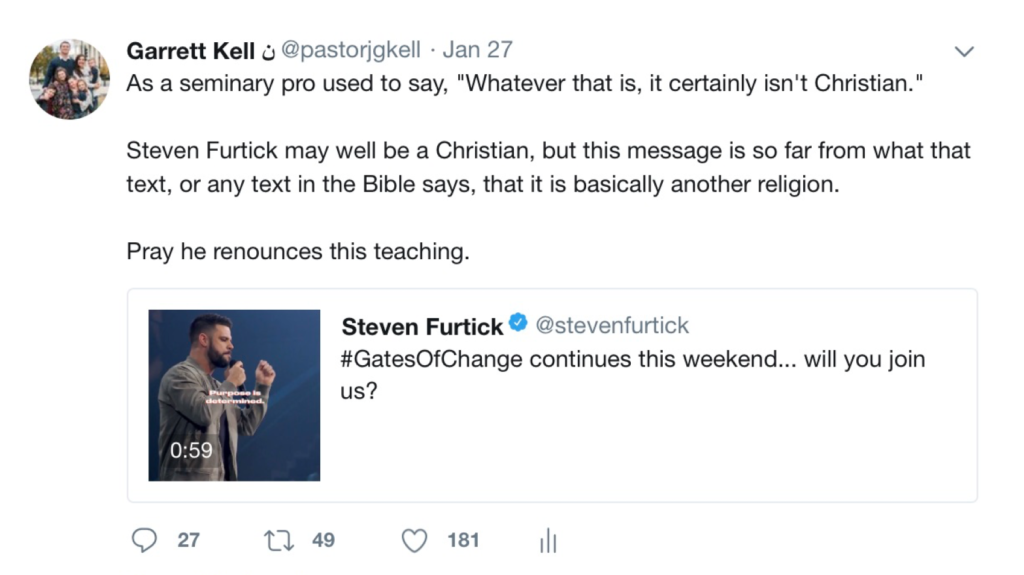Many of us have Muslim friends, family, neighbors, and co-workers we hope to see trust in Jesus. We know they consider Jesus a prophet, but we long to see them believe in Him as their Lord and Savior. As Ramadan approaches, we are provided with a fresh opportunity to pray for them and hopefully engage with them in spiritual conversation.
What is Ramadan?
On Sunday, May 5, 2019, billions of Muslims around the world will begin observing Ramadan. It is the 9th month of the Islamic lunar calendar and is considered the holiest month of the year for Muslims. Ramadan is one of the 5 Pillars of the Islamic faith, which requires all Muslims who are physically able to fast each day of the month, from sunrise to sunset.
This time of fasting from food, drink, and other physical needs are intended to purify the soul, practice self-restraint, and refocus one’s devotion to their god, Allah. This is also a time when many Muslims increase their almsgiving to the poor, which is another of the 5 Pillars of their faith.
The evenings are spent enjoying time with family and community meals, engaging in prayer and spiritual reflection, and reading from the Quran. The observance of Ramadan concludes, according to the western calendar, on the evening of Sunday, June 4th.
How Can We Pray During Ramadan?
Father, we pray that as they set their hearts to worship their god Allah, that You might make them to “know You, the only true God, and Jesus Christ whom You have sent” (John 17:3). Help them see that Jesus is Your eternal Son through whom they can have eternal life.
Father, we pray that as their bodies hunger and their tongues thirst, that You would show them Jesus who promised “I am the bread of life; he who comes to Me will not hunger, and he who believes in Me will never thirst” (John 6:35). Help them see the insufficiency of their works and lead them to hunger and thirst for the righteousness that only Jesus can give.
Father, we pray that as they practice self-restraint that You would show them Jesus who, before He was crucified for sinners, denied Himself and “prayed, ‘My Father, if it is possible, may this cup be taken from Me. Yet not as I will, but as You will’” (Matthew 26:39). Help them believe that He truly died on the cross and drank fully from the cup of Your wrath.
Father, we pray that as they give alms to the poor that You would show them Jesus who “though He was rich, yet for your sake He became poor, so that you through His poverty might become rich” (2 Corinthians 8:9). Help them see and treasure the eternal glory of Your Son Jesus.
Father, we pray that as they gather together to feast in the evening, that You would show them Jesus who invites sinners of all sorts to abandon their false gods and by faith join “those who are invited to the marriage supper of the Lamb” (Revelation 16:9). Show them the resurrected and ascended King of Glory who desires them to draw near to Him in faith.
Father, we pray that you would give Your church love for Muslims across the world. Make us like Jesus who “felt compassion for them because they were like sheep without a shepherd” (Mark 6:34). Guard us against self-righteousness that would lead us to have hard hearts toward those who do not know You.
Father, we pray that you would give Your church opportunity and courage to proclaim the Gospel to Muslims throughout the world. Lift our eyes to Jesus who promised to empower us when He said, “I am with you always even to the end of the age” (Matthew 28:20). Let us not fear any consequence of faithfully taking the Gospel to those who desperately need Your grace.
May this season of Ramadan be marked by the faithful intercession of God’s people who long to see many Muslims come to the saving knowledge of Jesus, the Son of God.
If you’d like ideas for daily prayer during Ramadan, you may want to consider this resource.








